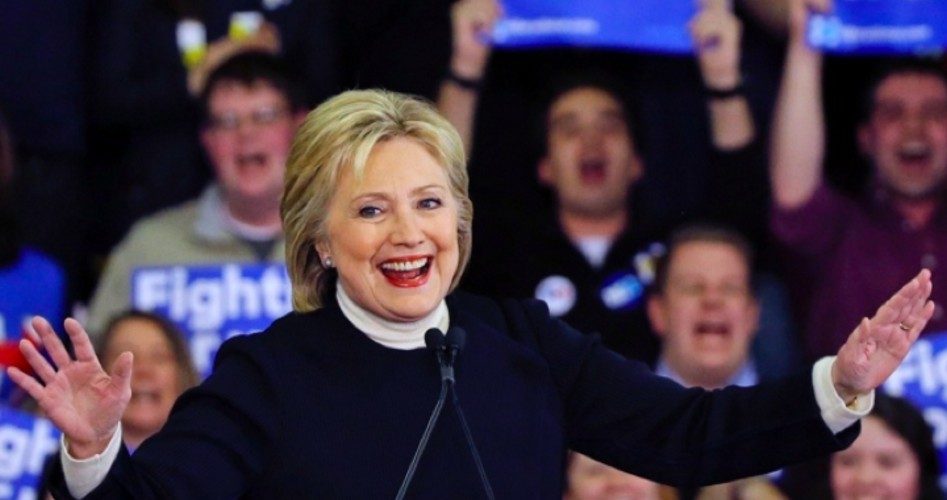
No sooner had Bernie Sanders won the New Hampshire primary than pundits began pointing out that — regardless of his popular appeal — the iconoclastic Vermont senator did not beat Hillary Clinton in the only poll that actually mattered: the delegate count. For despite losing to Sanders by a wide margin (60 to 38 percent) in the popular vote, Clinton left New Hampshire with at least as many delegates.
Moreover, Clinton now enjoys an overwhelming lead in total delegates — 394 to 44 at latest count. This, Americans were reminded, is because of the Democratic Party’s arcane and decidedly undemocratic way of choosing its presidential nominee. Since 1984, the Democratic Party (though not the GOP) has based its nominating process on two different types of delegates, so-called pledged and unpledged delegates. Pledged delegates, as the name implies, are delegates who must support the will of the voters, while unpledged superdelegates are completely independent. These latter are party elites who often declare their support for candidates before caucusing and voting has even taken place. In this electoral cycle, an overwhelming majority of superdelegates made their preference for Hillary Clinton clear, quite probably helping to dissuade potential candidates like Senator Elizabeth Warren and Vice-President Joe Biden from throwing their hats in the ring.
The candidacy of Hillary Clinton was supposed to be little more than a formality among Democrat insiders determined since the end of the Bill Clinton administration that his wife eventually succeed him to the Oval Office. Hillary was carefully groomed as a senator in a state (New York) where she would be guaranteed to win office, and then encouraged to run for president in 2008 with the support of most of the field of Democratic superdelegates.
But a funny thing happened on the way to the Clinton coronation. A junior senator from Illinois, Barack Obama, became the darling of the Democratic grassroots and, after winning a series of primary elections resoundingly, wooed most of Clinton’s superdelegates to his side. At the time of the 2008 New Hampshire primary, Obama had only 50 superdelegates to Clinton’s 154, but by June, he had a two-to-one superdelegate advantage. At that point, Clinton appeared to get the message: The time was not right, and history was on the side of the young black senator with the winning smile and visionary oratory. Reluctantly, she withdrew from the race to await her next chance. Obama played his part well, making Clinton his secretary of state to give her more experience and keep her in the public eye.
Now, in 2016, Clinton’s number has come up again, and once again, she enjoys a formidable lead in superdelegate math — much more formidable, in fact, than the advantage she had over Obama eight years ago.
This time around, Democratic insiders are determined that their pick be elected — so much so that they have tried to clear the field of every other contender. But once again, it is far from clear whether things will go according to plan.
For one thing, the candidate herself is in serious legal trouble and may well be indicted for her failure to protect state secrets by receiving and sending top secret e-mails on an unprotected home server. Such misdeeds would have long since earned anyone lacking the Clintons’ vast network of insider support a conviction and lengthy jail sentence, so it is far from clear whether the Obama Justice Department will in fact indict Hillary. But even if she is protected from prosecution by her political backers, her brand — already questionable — continues to wear as more and more facts about the e-mail scandal come out.
For another thing, Bernie Sanders, unmoved by the superdelegate math, is shaking things up with his potent blend of populism and stirring oratory. At this point, it seems unlikely that Clinton’s legions of supporters among the superdelegates will be moved — Sanders is, after all, not a young black lawyer but an old white guy. Sanders may sing a mean “We Shall Overcome,” but he doesn’t have the star power of Barack Obama. That, at least, is the narrative so far, but perceptions among the Democratic nomenklatura may change if the Sanders express continues to accelerate and Hillary’s legal prospects dim.
Superdelegates were created in the first place to protect the interests of Democrat Party insiders, to insure that popular insurgent candidates like Sanders not wrest the nomination away from party elites. But, like other Democrats, they are ultimately interested in ensuring that the most electable candidate gets the presidential nomination. If that candidate turns out to be Sanders, then minds could change.
However, a more likely scenario in the event of a Clinton implosion would be the hasty drafting of another establishment-approved candidate, such as Joe Biden, along with a wholesale transfer of alliances on the part of the superdelegates to the party’s new anointed one.
Either scenario would wreak havoc on an already-chaotic presidential race. Time — and behind-the-scene machinations of which we the people have no inkling — will ultimately tell.
Photo of Hillary Clinton: AP Images



